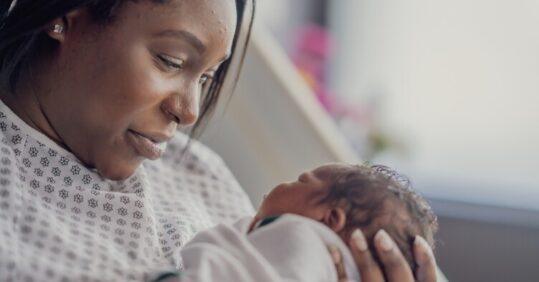Postnatal contraception advice reduces the risk of back-to-back pregnancies

Women who are given postnatal contraception advice by healthcare professionals after giving birth are significantly less likely to experience risky, closely spaced or back-to-back pregnancies, a new study shows.
Research from University College London (UCL) also found that women who were satisfied with the contraception advice they received were more likely to be using contraception in the months following childbirth.
Despite this, researchers discovered that nearly 50 per cent of women were not using any form of contraception two months postpartum, putting them at increased risk of another pregnancy soon after giving birth.
The findings are published in the British Journal of Obstetrics and Gynaecology and support calls by the national professional membership organisation, the Faculty of Sexual & Reproductive Healthcare, for women to get high-quality contraception counselling around the time of birth.
Related Article: Government launches ‘rapid’ national inquiry into maternity services
Giving birth to two babies less than 18 months apart can put both mother and baby at risk. A short time between pregnancies means that the mother’s body cannot fully recover, which can lead to complications such as premature birth, low birth weight or stillbirth. For the mother, the space between pregnancies allows both physical and emotional healing.
Currently, many women who have given birth only receive contraception advice when they visit their GP for a postnatal check-up six to eight weeks after giving birth, and many couples will resume having sex before this first postnatal appointment.
The researchers analysed results from the 2023 Women’s Reproductive Health Survey for England (RHSE), which was commissioned by the Department of Health and Social Care. The data included responses from 2,073 women who gave birth in the previous year. The new study looked at participants’ employment status, education level, financial situation, marital status and whether the women had received contraception advice after giving birth and how satisfied they were with that advice.
The findings show that most women were using contraception within a year of giving birth. Almost three-quarters of the women (73 per cent, n=1,489) were using contraception at the time the researchers undertook the survey. However, 53 per cent (n=1,154) had not started using contraception within two months after giving birth.
Examining the relationship between two variables, the researchers found that young women who received postnatal contraception advice and were satisfied with the counselling, were more likely to start contraception within two months postpartum. Young women who did not want any more children and who were happy with the contraception advice they received were also more likely to be taking contraception within a year of giving birth.
Dr Neha Pathak, a senior author on the paper from the UCL Institute for Women’s Health, said that although it was a ‘huge plus’ that most women were getting contraception advice during pregnancy, she cautioned that only one in two women were happy with this advice.
Related Article: ‘Effective contraception’ must be used by women on weight-loss jabs, warns MHRA
‘Contraceptive counselling is not just about ticking a box. The advice needs to be high quality, and patients need to be satisfied they are getting their questions answered so that they have reproductive agency and can choose to prevent pregnancy if they wish to,’ she said.
‘We need to ensure that everyone who wants or needs contraception has started taking it within two months of giving birth because there is a risk of pregnancy three weeks after childbirth, and we know that many people do start having sex again during that time.’
The analysis showed that women who received contraception counselling and were happy with it were significantly more likely to start using contraception within two months of giving birth.
Lead author Catherine Stewart, also from UCL, said: ‘Our study suggests that comprehensive contraception counselling should be a standard part of maternity care, as recommended by the Faculty of Sexual & Reproductive Healthcare.’
Related Article: Interview: England’s chief midwife on community midwifery and ‘going into other people’s worlds’
Reference: Factors associated with contraceptive initiation and use among women who have given birth in the last year: Findings from the 2023 Women’s Reproductive Health Survey. July 2025. https://doi.org/10.1111/1471-0528.18264

See how our symptom tool can help you make better sense of patient presentations
Click here to search a symptom


![Menopause: identification and management [NG23]](https://s3-eu-west-2.amazonaws.com/images.nursinginpractice.com/wp-media-folder-nursing-in-practice/wp-content/uploads/2025/03/PULSE-NIP-UPLOAD-BAYER-NICE-MENOPAUSE-A5-HANDBOOK.jpg)
